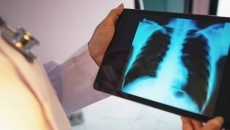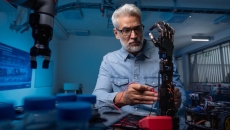artificial intelligence
The company's computer vision technology tracks supply and implant usage in hospital operating and procedural rooms.
The AI-powered COPD care coordination tool uses EHR data and natural language processing to identify and manage high-risk patients.
The tech giant will offer access to the LLM for enterprise use as regulatory scrutiny mounts over the model’s data practices and medical diagnostic claims.
The offering measures AI's real-world performance and safety around handling realistic medical conversations, using physician-created rubrics and GPT-4.1 scoring.
Juan Lavista Ferres, CVP and chief data scientist at Microsoft's AI for Good Lab, and Meghana Kshirsagar, senior research scientist, discuss their research on protein symmetry.
Two new memos update federal AI policy, which the White House says will accelerate innovation, strengthen public trust and prioritize U.S.-developed AI tools.
The Health Tech Investment Act would establish a reimbursement pathway for FDA-cleared AI-enabled medical devices.
A study published in medRxiv reveals that inference techniques including chain-of-thought and search augmented generation can reduce AI hallucination rates.
A study published in Cell reveals a paralyzed man could control a robotic arm for seven months following the implantation of an AI-enabled brain-computer interface.
The aim is to simplify care, save time and deliver resources faster by using AI to advance emergency department efficiency, cardiotoxicity risk prediction and census forecasting.







